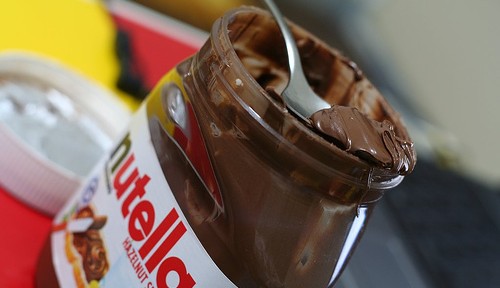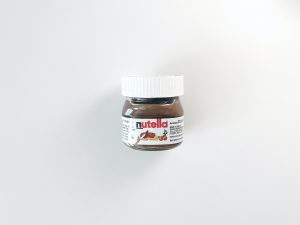Contrary to popular belief, Red Bull does not actually give you wings. “The energy drink company recently agreed to pay consumers more than $13 million to settle a proposed U.S. class-action suit accusing the beverage maker of false advertising”. Anyone who purchased one can of Red Bull between January 1, 2002 and October 3, 2014 is entitled to $10 cash, or $15 in Red Bull products. There is no proof of purchase required to be included in the settlement. Final court approval of the proposed payouts is set to be decided May 1, 2015. Read More
Tag Archives: consumer
Credit Will Do “Fine”
The likes of Target and Starbucks are about to enter round 2 of the heavyweight fight against Visa and Mastercard. The settlement, which is roughly $7.2 billion, will bring an end to 7 years of litigation concerning the credit card companies themselves and big merchants, such as Target, Starbucks, and Wal-Mart. The large merchants are protesting the proposed answer over “swipe fees” that they are ordered to pay in return for granting their customers quick service to their credit cards. The underlying issue is that the nearly 8 million merchants are saying the deal is unfair for them, claiming the credit card companies are in bed with the banks and are focused on monetizing with no regard for business. The economics of the settlement are also in question, as well as the $550 million tied up in a preliminary deal between the two parties poised to stop the bleeding.
Skechers Pays $50 Million in False Advertisement Claim

I couldn’t find free-to-license pictures of Shape-Ups, but just imagine regular running shoes with a grotesque protuberance out the bottom.
If you believe wearing a specific shoe without committing to some aerobic or at least extra exercise is somehow going to transform your body from flab to fab, then I’ve got some snake oil to sell you. Nevertheless, shoe company Skechers (sic) made just that very claim with their line of “workout” sneakers called “Shape-Ups”. According to the marketing for the shoe, buying this particular brand will by virtue of wearing it work out and “tone” your legs, leading to fat loss and muscularity and all-around healthiness that you will not otherwise attain without the discomfort and strain of actually working out or being all-around healthy. The company conducted some tests and studies (by well-paid scientists-for-hire) that seemed to support this concept, and produced celebrity endorsements by the likes of quarterback Joe Montana and socialite Kim Kardashian, who claimed that the shoe was so beneficial that she abandoned her personal trainer altogether, relying entirely on the shoe as a sort of workout God-figure. Surprise surprise, the shoe did not live up to its expectations, and the Federal Trade Commission subsequently sued Skechers to stop spreading nonsense. Today, the company will pay about $50 million, some of which is in fines and most of which will go to reimbursing dissatisfied customers. And, of course, the company will have to change its marketing significantly when it reintroduces the shoe next year.

Nutella Settles Class Action About Healthiness
Nutella, the hazelnut spread considered by some to be the immortality-inducing ambrosia of myth, was alleged in a class action lawsuit to not be as healthy as advertised. How anyone can believe that a product akin to a peanut-butter-chocolate lovechild is healthy is beyond me, but nevertheless, the company that makes it, Ferrero, now must pay out $4 per container in trust to anyone who bought their product over a four-year period. If you bought a jar of Nutella between Jan. 1, 2008 and Feb. 3, 2012, you’re entitled to recompense for up to five jars, or $20. A fund of $2.5 million will be set up by Ferrero to pay out these claims.
In addition to the monetary penalty, Ferrero agreed to change its advertising to remove any suggestions that Nutella is healthy. What used to say “An example of a tasty yet balanced breakfast” will now say “Turn a balanced breakfast into a tasty one.” Astute readers will note that these two phrases are not very different at all. The key distinction, though, is that the former slogan implied that Nutella is both tasty and balanced, while the new one only implies that Nutella adds some taste to an otherwise bland albeit healthy breakfast. Ignoring the fact that many Nutella aficionados eat it by the spoon as meal in itself, this new advertising will actually make little impact on the perception of Nutella as healthy. I don’t think Ferrero was actually fooling anybody with their previous slogan for the 100 calorie-per-tablespoon spread.
To find out how to file a claim on your own jar of fraudulently-advertised hazelnut butter, visit the official Nutella class action settlement website.
AT&T Offers to Settle over Limiting Unlimited Plans, Is Ignored
Via AP: When smartphones first came on the market, telephone companies offered “unlimited” data plans cheaply in an effort to attract users. Back then, there were so few smartphones, and even fewer users who used more than a couple of gigabytes of data, that advertising these unlimited plans would mean a great many people would buy them without using much data at all. As smartphones became more ubiquitous and easier-to-use, though, the number of heavy users on unlimited plans rose to the point where they outnumbered regular users, and it was no longer profitable to sustain truly unlimited use. Then, AT&T did something incredibly boneheaded: they started capping data use for certain unlimited plans. In a textbook “do not do this” move, AT&T throttled the service for the top 5% of users, or slowed it down until phones were rendered nearly useless for anything other than calls and texts. This varied by area, too. The top 5% in New York City would be using a vastly different amount of data than the top 5% in Middle-of-Nowhere, Kansas. Many customers subsequently sued AT&T for false advertising. Rightfully so, because I can’t imagine “unlimited” to mean anything other than “not limited at all”. AT&T has since announced that it will be throttling data at 3GBs/month for all unlimited users, not just the top 5%, which brought up yet another problem: limited users pay $30/month for 3GB of data, the same as so-called “unlimited” plans. All in all, AT&T’s handling of the affair has been a major clusterwhoops.



